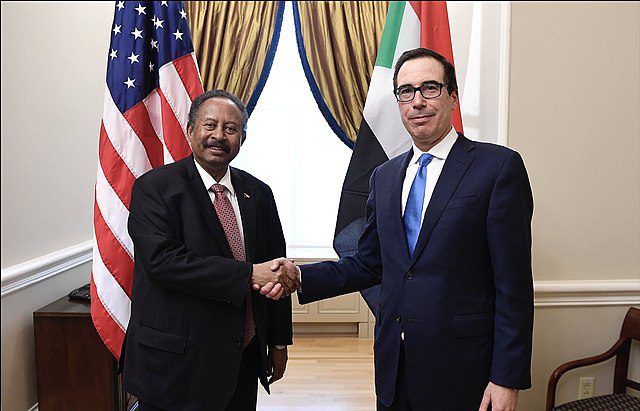Sudan needs international support to preserve the democratic path
Kanako Mita and Sawako Utumi
Modern Tokyo Times

The nation of Sudan faces another fragile moment on its path to democracy. Indeed, Prime Minister Abdalla Hamdok said pointedly that if a solution isn’t found then Sudan’s future will be thrown “to the wind.”
In September, loyalists to the former President Omar al-Bashir and other opportunists failed in their coup. However, military leaders demanding changes to the Forces of Freedom and Change (FFC) political coalition are intent on challenging the status quo.
Hamdok and civilian members of the FFC are alarmed by events. Thus, Hamdok said, “I am not neutral or a mediator in this conflict. My clear and firm position is complete alignment to the civilian democratic transition.”
Lee Jay Walker says, “Since the demise of al-Bashir, the nation of Sudan set itself on the democratic path. Henceforth, greater religious freedom and other reforms were implemented. However, the economic crisis prior to the demise of al-Bashir – along with the international coronavirus (Covid-19) crisis – means vast numbers are struggling to survive economically.”
The BBC reports, “But support for the transitional government has slumped in recent months as economic reforms spearheaded by Mr. Hamdok have seen fuel subsidies slashed and inflation soar.”
Hence, the complex civilian and military angle of the FFC that shares power is witnessing a power grab according to Hamdok. The international community – in a very different setting – did little to support democratic forces in Myanmar and this resulted in the military taking power. Therefore, the international community needs to provide genuine economic assistance and other types of support to democratic forces in Sudan.
If not, then like Myanmar, the forces of openness and democracy will be crushed.
Anti-democratic forces calling for the military to seize power chanted “down with the hunger government.”
Hamdok says that the coup in September wasn’t solely the military. Instead, he insists that divisions existed from the outset in 2019 when al-Bashir lost power. Hamdok said, “The serious political crisis that we are living in right now, I would not be exaggerating to say, is the worst and most dangerous crisis that not only threatens the transition but threatens our whole country.”
He continued, “This crisis was not created today, it did not descend upon us from the sky, and it did not surprise us at all.”
He also acknowledges the neglect of eastern Sudan and that ethnic grievance are fully understood. However, the infrastructure of Sudan was already weak before the changing power dynamics of 2019.
Hamdok pointedly said, “The coup attempt opened the door for discord, and for all the hidden disputes and accusations from all sides, and in this way we are throwing the future of our country and people and revolution to the wind.”
Reuters reports, “Nevertheless he said he had spoken to both sides, and presented them with a road map that called for the end of escalation and one-sided decision-making and a return to a functioning government.”
It is hoped that the international community will respond positively to Sudan and help this nation on its path to democracy. If not, then the mirror of Myanmar is all too real.
https://www.bbc.com/news/world-africa-58943013

PLEASE SUPPORT MODERN TOKYO TIMES by DONATING
Modern Tokyo News is part of the Modern Tokyo Times group
DONATIONS to SUPPORT MODERN TOKYO TIMES – please pay PayPal and DONATE to sawakoart@gmail.com
http://moderntokyotimes.com Modern Tokyo Times – International News and Japan News
https://www.pinterest.co.uk/moderntokyotimes/ Modern Tokyo Times is now on PINTEREST
http://sawakoart.com – Sawako Utsumi personal website and Modern Tokyo Times artist
https://moderntokyonews.com Modern Tokyo News – Tokyo News and International News
PLEASE JOIN ON TWITTER
https://twitter.com/MTT_News Modern Tokyo Times